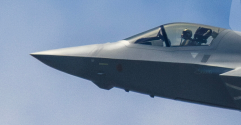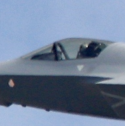Your knowledge about history needs update. China was a US ally in the 1980s and firmly in the US camp against the Soviet Union. US itself was supplying a lot of weapons to China at that time. China had such a good relationship with not just the Saudis at that time, but israel, France and many european countries. China bought plenty of sensitive military equipment from Europe at that time as well.China is not the sole meaningful competitor against and alternative to the US on the global stage because the Chinese shy away from messy politics.
Angering the US by purchasing Chinese arms — that alter the regional balance of power — has been a family tradition for the House of Saud since the 1980s, when the father and grandfather of the current Saudi ambassador to Washington arranged for the purchase of 36 Chinese IRBMs while the former occupied the very same position in DC.
From their perspective, provoking Washington by deepening ties with Beijing is akin to manipulating a lover with jealousy. Can't do it too often, but it's a known option of their foreign policy playbook.
Though at this point, the Saudis aren't too far from dumping Uncle Sam for good to be nominally single.
China is not the Soviet Union: the Chinese are not looking to replicate the path or failures of an empire that collapsed onto itself.
TBF, your concern is not unreasonable, but this is a bit of a chicken or egg problem.
China is known to draw in "new friends," or otherwise sow the seeds for geopolitical alignment, by cultivating de facto dependencies without demanding de jure or overt commitments that risk inspiring cold feet.
Once enough dependency on your ecosystem (or supply chains) is established, they'll have to proritize you over the competition whether they want to or not.
It's not going to be easy for the US to nerf J-35 sales to GCC countries in particular or MENA countries in general.
This isn't exactly a secret, but largely ignored by most Western observers: the US has actually been fairly open to selling the F-35 to the KSA in principal.
Problem is the Americans want to sell the Saudis what would effectively be a castrated F-35 (), while the Saudis supposedly not only want a level of access and control comparable to what the Israelis got with the F-35I Adir, but a significant degree of localization in line with the stated objectives of their agenda:
Besides the fact that the Israel Lobby, as well as the Qataris, have been tirelessly lobbying Congress against Saudi acquisition of the F-35 for years, Lockheed is understandably reluctant about the Saudis assembling F-35 fighters themselves, and unlike the Italians or Japanese, the Saudis will need Lockheed to "go out of its way" to achieve any reasonable or respectable level of localization.
OTOH, CATIC — which is the AVIC subsidiary principally responsible for exporting Chinese military aircraft — openly markets its and exporting assembly lines and manufacturing capacity, with a level of ToT that'd be unimaginable with Lockheed.
If the Saudis are to acquire a 5th gen fighter in meaningful numbers — on their terms or something close to it before 2035 — a Chinese J-35 derivative is realistically speaking the only game in town.
Even in the 2010s US China relationship was neutral and US was okay with many countries exporting sensitive stuff to China and also okay with China having good relations with those countries.
But China was a country with 5 trillion GDP back then and US 12 trillion. Now its 19 trillion.
Mood has shifted. Times have changed.
China went from US ally to neutral to now biggest enemy. US now has a precondition about any country that wants to be in the US camp. You cannot have good relations with China in the strategic space.
China supplying weapons to any country is a big no no now. Especially US vassals. Gulf Arabs are co.mplete US vassals. There is no way they can survive without US protection. So they have no choice but to listen to US when it comes to weapons purchases.






